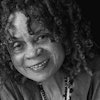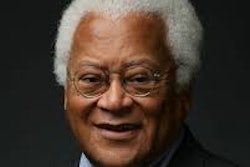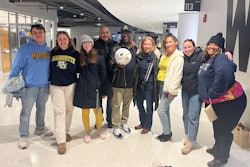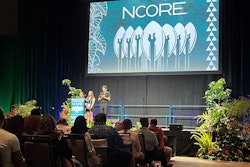Shaped by student interest as well as the need to keep curriculum relevant, colleges and universities are increasingly developing social justice programs to address pressing issues in contemporary society.
Who would be interested in social justice studies? According to the Eastern Kentucky University (EKU) website, students of all backgrounds might be. There is curriculum for students who want to deepen their knowledge on subjects such as poverty, civil rights, climate change, corporate power, education, healthcare, LGBTQ equality, mass incarceration, police power, racism, inequality and numerous other pressing issues of the day.
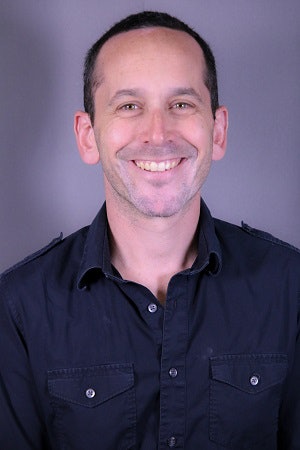 Dr. Judah Schept
Dr. Judah Schept“Our students come to the program often already very aware of injustice and inequality and craving the political analysis, historical context and social science research and theory in which to situate and understand them,” says Dr. Judah Schept, associate professor in the School of Justice Studies at EKU. “They all hope to use their studies to make important social change — through law and policy, direct service or organizing, writing and research, art and design, etc.”
The Arizona State University (ASU) School of Social Transformation (SST) takes an interdisciplinary and intersectional approach to bring together diverse scholars, students and communities in an effort to find innovative solutions for local, national and international issues. Founded in 2009, there are approximately 1,500 students in the undergraduate and graduate programs, including 30 doctoral students pursuing a Ph.D. in justice studies. More than 13,000 ASU students take SST courses.
“SST is the scholarly nexus of academia and activism,” says Dr. Pardis Mahdavi, director of SST. “I have always been guided by what I call the ‘five I’s.’ These are inclusion, interdisciplinarity, intersectionality, intentionality and innovation. When I learned about SST I was struck by how all five of these are present and lived at this school daily. It was also amazing to learn about a school where 70% of the faculty identify as faculty of color, and this matches our students as well.”
Programming
EKU launched its B.S. program in social justice studies in 2015. Cohorts vary in size from year to year with a high of 10 to a low of four. Schept says that faculty develop classes that introduce students to a wide array of social problems, while also pushing them to see how these issues are deeply connected.
“When I teach about mass incarceration, for example, we spend considerable time examining how prison and jail growth has to be understood beyond crime and punishment,” Schept says. “It is intimately connected to issues of structural unemployment, land use, revenue generation, state reorganization, racism and profit. While also and always studying how people, organizations and communities have engaged in principled struggle against state violence.”
Boston College, a Jesuit institution, offers a B.A. in criminal and social justice through its Woods College of Advancing Studies. It explores the social, economic and psychological factors of criminal behavior and examines how criminal justice operates in modern society. Major requirements include courses in criminal law, criminal justice and research methods for the social sciences.
Among the faculty is Judge James V. Menno, who spent two
 Dr. Pardis Mahdavi
Dr. Pardis Mahdavidecades as an associate justice of the Massachusetts Probate and Family Court. Menno says his students come from diverse backgrounds, including military veterans and individuals who have a desire to work in either law enforcement or the court system.
“The law and morality course makes them think through the moral dilemmas that lawyers and judges face, which are inherent in many legal issues,” says Menno. “By reading philosophers like Aristotle, Kant and Aquinas, they are challenged to think through the moral and justice issues inherent in many of our social and legal problems. This course, I do believe, helps students and challenges them to think of concepts of justice and mercy.”
At SST, students examine the dynamics of difference and power, says Mahdavi. Students do research on topics such as mass incarceration, reproductive technologies and hip hop. “They all want to be intentional in figuring out research foci that will help transform the world,” she says. “Our students also manifest the rigorous training that our faculty give them in both theory and practice.”
Challenging the status quo
The social justice major launched in fall 2019 at Dominican University of California was born out of curriculum reform. Three years ago, a minor in community action and social change was established and has received a very positive response. Two of the foundational courses for the minor are now also part of the major. Although it was founded by the Dominican Sisters of San Rafael, the university is not affiliated with any diocese.
 Julia van der Ryn
Julia van der Ryn“We’re very much an interdisciplinary program in an ecumenical context,” says Dr. George Faithful, a historical theologian, assistant professor and co-director of the social justice major. “I’m looking at both the theological concepts — not just from Christianity, but from other religions as well — and also looking at their historical context.”
This first academic year, the major has only pulled a few students taking it on as a second major. There are 40 students admitted for the class of 2024 who expressed interest in the major. Faithful and co-director Julia van der Ryn, who is also executive director for the Center for Community Engagement, will be reaching out to the students via email and telephone to get a greater sense of their specific interests.
“We have service learning classes across the curriculum,” says van der Ryn. “We see students … become very passionate and fired up. It really concretizes their commitments, how important equity and social justice are, because a lot of students are first-gen or from marginalized communities.
“To use Freirian [author of Pedagogy of the Oppressed] language, it’s very powerful for students to gain critical consciousness to be able to understand the structures and conditions that have shaped their lives,” she continues. “It really helps people who have
 Dr. George Faithful
Dr. George Faithfulinternalized oppression and racism to be empowered to understand it’s not about poor choices. It’s about the structures that don’t work for them.”
Once students experience this awakening in the classroom, they take that mindset into their careers. By example, many nursing majors at Dominican have taken the community action and social change minor. That could lead to a double major, says van der Ryn. Some of the career paths for social justice majors that Faithful and van der Ryn envision include work in government agencies, nonprofit organizations, human rights and peace organizations, legislative advocacy, education, law, criminal justice and healthcare.
Starting in the fall, Dominican will be partnering with the State of California to train civic action fellows, undergraduates who will receive scholarship support and training for long-term public service.
“We’re supporting as many students as we can into seeing themselves as active members of society while they’re in college,” says van der Ryn. “This is not something to put off until graduation.”
Practical applications
Mahdavi says SST has a number of accomplished alumni, among them U.S. Senator Kyrsten Sinema (AZ-D), who studied justice studies. Several recent graduates have gone into prison reform work. Some have been involved in setting up Tempe, Arizona’s first mental health court, and many work at, and have even started, non-profit organizations.
Stephanie Gigliotti, who received a B.A. in criminal and social justice from Woods College of Advancing Studies at Boston College in 2017, works full-time as a victim witness advocate for the office of Suffolk County (MA) District Attorney Rachael Rollins. She is also attending law school at night and planning on becoming an assistant district attorney.
“My work as a victim witness advocate allows me to care for victims and witnesses of crime,” says Gigliotti, who has held this
 Stephanie Gigliotti, second from left, on a project visit to ROCA, an intervention program for at-risk young men.
Stephanie Gigliotti, second from left, on a project visit to ROCA, an intervention program for at-risk young men.job since January 2018. “I keep them informed of the court proceedings and during trial. I make them aware of their rights in the Massachusetts Victim Bill of Rights. I inform them of service providers specific to the crime committed and additional needs they may have.”
Gigliotti says her faith and the Catholic background of Boston College have been instrumental in her current job and career ambitions. “I think about my professors and lessons all the time,” she says. “The B.A. in criminal and social justice reflected the Catholic Jesuit mission of Boston College by providing a moral framework to intelligently, humbly, mercifully and gracefully change an unequal society.”
Schept says students pursuing a B.S. in social justice studies have a variety of career objectives. Some want to work on a specific issue, while others are motivated by a specific type of work, such as law, policy research, organizing and advocacy. Graduates have gone on to work on legal defense, capital punishment, LGBTQ rights and climate change issues, and also living wage campaigns.
“We aren’t measuring our hopes for our students by the size of their paychecks, the title of their jobs or the scale of their responsibilities,” says Schept. “We hope that they are engaging in the world in principled commitment to making it better for everyone.”
This article originally appeared in the April 16, 2020 edition of Diverse. You can read it here.




